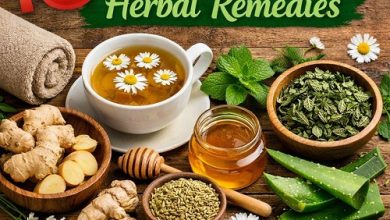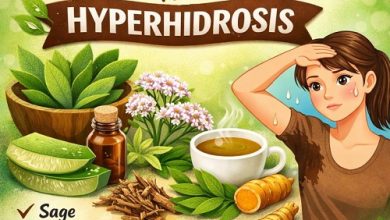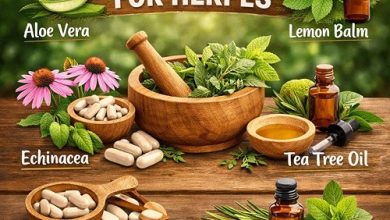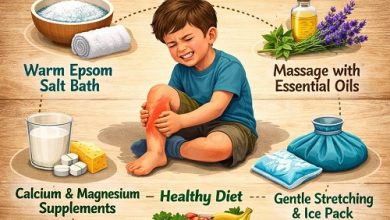6 Natural Alternatives to Statins That Can Lower Your Cholesterol Fast
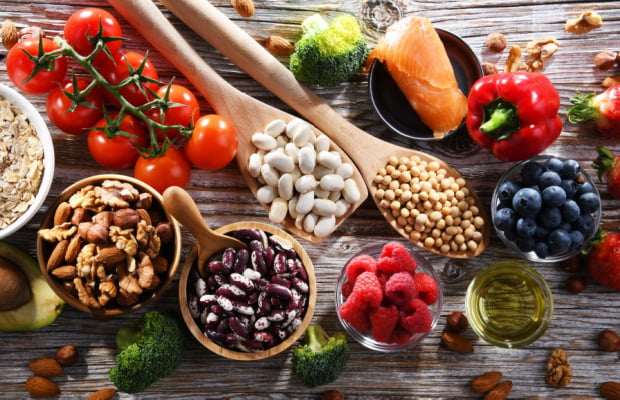
High cholesterol is a growing concern across the world, particularly in countries where processed foods, sedentary lifestyles, and stress dominate daily life. While statins—prescription medications designed to lower cholesterol—are widely used, many people are turning to natural alternatives due to potential side effects like muscle pain, fatigue, and liver problems.
Fortunately, several natural remedies and lifestyle strategies have been shown to help reduce cholesterol levels effectively—and often quickly—without medication. Six of the most promising natural alternatives to statins, including the science behind how they work and practical tips on using them safely.
Understanding Cholesterol: The Basics
Before diving into natural alternatives, it’s important to understand cholesterol itself. Cholesterol is a waxy, fat-like substance found in every cell of your body. It’s essential for producing hormones, vitamin D, and digestive substances. However, when levels—especially of LDL (low-density lipoprotein) cholesterol—become too high, they can clog arteries and increase the risk of heart disease and stroke.
Statins work by blocking a liver enzyme that helps make cholesterol. But what if we could achieve similar results using diet, lifestyle, and herbal supplements?
Let’s look at six scientifically backed natural alternatives to statins that can help lower your cholesterol fast.
1. Berberine: The Metabolic Wonder Compound
What It Is:
Berberine is a bioactive compound extracted from several plants, including Berberis vulgaris. It’s been used in traditional Chinese and Ayurvedic medicine for centuries, primarily for its antimicrobial and metabolic benefits.
How It Works:
Berberine helps lower LDL cholesterol by activating an enzyme called AMPK (adenosine monophosphate-activated protein kinase), which regulates metabolism. It also decreases the production of cholesterol in the liver and improves insulin sensitivity.
What the Science Says:
A 2015 meta-analysis published in Oxidative Medicine and Cellular Longevity found that berberine can significantly reduce total cholesterol, LDL, and triglycerides while increasing HDL (good cholesterol).
How to Use:
- Dosage: 500 mg, 2–3 times per day before meals
- Precautions: May interact with other medications or lower blood sugar. Consult a healthcare provider.
2. Red Yeast Rice: Nature’s Statin
What It Is:
Red yeast rice is a fermented rice product that contains monacolin K—the same active compound found in lovastatin, a prescription statin.
How It Works:
Monacolin K inhibits HMG-CoA reductase, the liver enzyme that produces cholesterol. Essentially, it mimics the mechanism of pharmaceutical statins.
What the Science Says:
A review published in PLOS ONE in 2017 confirmed that red yeast rice supplements significantly reduced total and LDL cholesterol in people with high levels. Unlike prescription statins, the natural compounds in red yeast rice come with fewer side effects for many people.
How to Use:
- Dosage: 1,200–2,400 mg daily, in divided doses
- Precautions: May still cause some statin-like side effects in sensitive individuals. Quality varies between brands, so choose standardized products.
3. Plant Sterols and Stanols: The Cholesterol Blockers
What They Are:
Sterols and stanols are natural substances found in plants that have a structure similar to cholesterol. When consumed, they block the absorption of dietary cholesterol in the intestines.
How They Work:
These compounds compete with dietary cholesterol for absorption in the digestive tract. As a result, less cholesterol makes it into the bloodstream, and LDL levels drop.
What the Science Says:
The Journal of the American Heart Association reports that consuming 2 grams of plant sterols or stanols daily can reduce LDL cholesterol by up to 10% in just a few weeks.
How to Use:
- Sources: Fortified foods like margarine, orange juice, yoghurt, and supplements
- Dosage: 1.5–3 grams per day
- Precautions: Generally safe but should be used as part of a heart-healthy diet.
4. Soluble Fibre: A Gut-Friendly Solution
What It Is:
Soluble fibre is found in foods like oats, apples, beans, lentils, and psyllium husk. Unlike insoluble fibre, it dissolves in water to form a gel-like substance in your gut.
How It Works:
Soluble fibre binds to cholesterol particles and bile acids in the digestive tract, helping to flush them out of the body before they’re absorbed. This process forces the liver to use more cholesterol to make bile acids, thereby lowering overall cholesterol levels.
What the Science Says:
A study published in the American Journal of Clinical Nutrition showed that consuming just 5–10 grams of soluble fibre daily can lower LDL cholesterol by about 5%.
How to Use:
- Best Sources: Oats, barley, chia seeds, flaxseed, legumes, and psyllium husk
- Dosage: Aim for 10–25 grams of total soluble fibre daily
- Precautions: Increase gradually to prevent bloating or digestive discomfort.
5. Omega-3 Fatty Acids: The Heart’s Best Friend
What They Are:
Omega-3 fatty acids are essential fats found primarily in fatty fish like salmon, sardines, and mackerel, as well as flaxseeds and walnuts.
How They Work:
Omega-3s don’t directly lower LDL cholesterol much, but they significantly reduce triglycerides, inflammation, and the risk of plaque formation in arteries. This makes them a valuable companion in overall cardiovascular protection.
What the Science Says:
Numerous studies, including one in the New England Journal of Medicine, confirm that high-dose omega-3 supplements can reduce triglyceride levels by up to 30% and may help prevent heart attacks.
How to Use:
- Sources: Fatty fish, flaxseeds, chia seeds, or supplements
- Dosage: 1,000–3,000 mg of combined EPA and DHA daily
- Precautions: May interact with blood thinners; choose high-quality, purified supplements.
6. Niacin (Vitamin B3): The HDL Booster
What It Is:
Niacin is a B vitamin that plays a key role in energy production and cardiovascular health. It’s available both as a supplement and in foods like chicken, turkey, peanuts, and mushrooms.
How It Works:
Niacin lowers LDL and triglycerides while raising HDL cholesterol—something statins do less effectively. It works by reducing the liver’s production of LDL and VLDL (very low-density lipoprotein) particles.
What the Science Says:
Clinical trials like the Coronary Drug Project have shown that niacin improves long-term heart outcomes and significantly increases HDL cholesterol levels.
How to Use:
- Dosage: 500–2,000 mg per day (only under medical supervision)
- Precautions: High doses can cause flushing, liver toxicity, and insulin resistance. Extended-release formulations may reduce side effects.
Additional Tips to Lower Cholesterol Naturally
While supplements and specific foods can play a powerful role in managing cholesterol, they work best when paired with a healthy lifestyle. Here are key strategies to maximise your results:
1. Eat More Whole Foods
- Focus on fruits, vegetables, whole grains, and lean proteins.
- Avoid trans fats, refined sugars, and ultra-processed foods.
2. Exercise Regularly
- Aim for at least 30 minutes of moderate exercise, like brisk walking or cycling, five days a week.
- Exercise helps raise HDL and lower LDL.
3. Maintain a Healthy Weight
- Even a 5–10% weight loss can significantly lower cholesterol levels.
4. Quit Smoking and Limit Alcohol
- Smoking lowers HDL and damages blood vessels.
- Excessive alcohol can raise triglycerides.
5. Manage Stress
- Chronic stress affects cholesterol metabolism. Practice meditation, deep breathing, or yoga.
Final Thoughts
Lowering cholesterol naturally is entirely possible, especially when combining proven supplements like berberine and red yeast rice with smart lifestyle changes. While statins are appropriate for many high-risk individuals, they aren’t the only option.
If you’re considering natural alternatives to statins, always speak with a healthcare provider first—especially if you’re already on medication or managing other conditions like diabetes or high blood pressure. With the right approach, you can take control of your heart health and lower cholesterol safely, naturally, and effectively.

